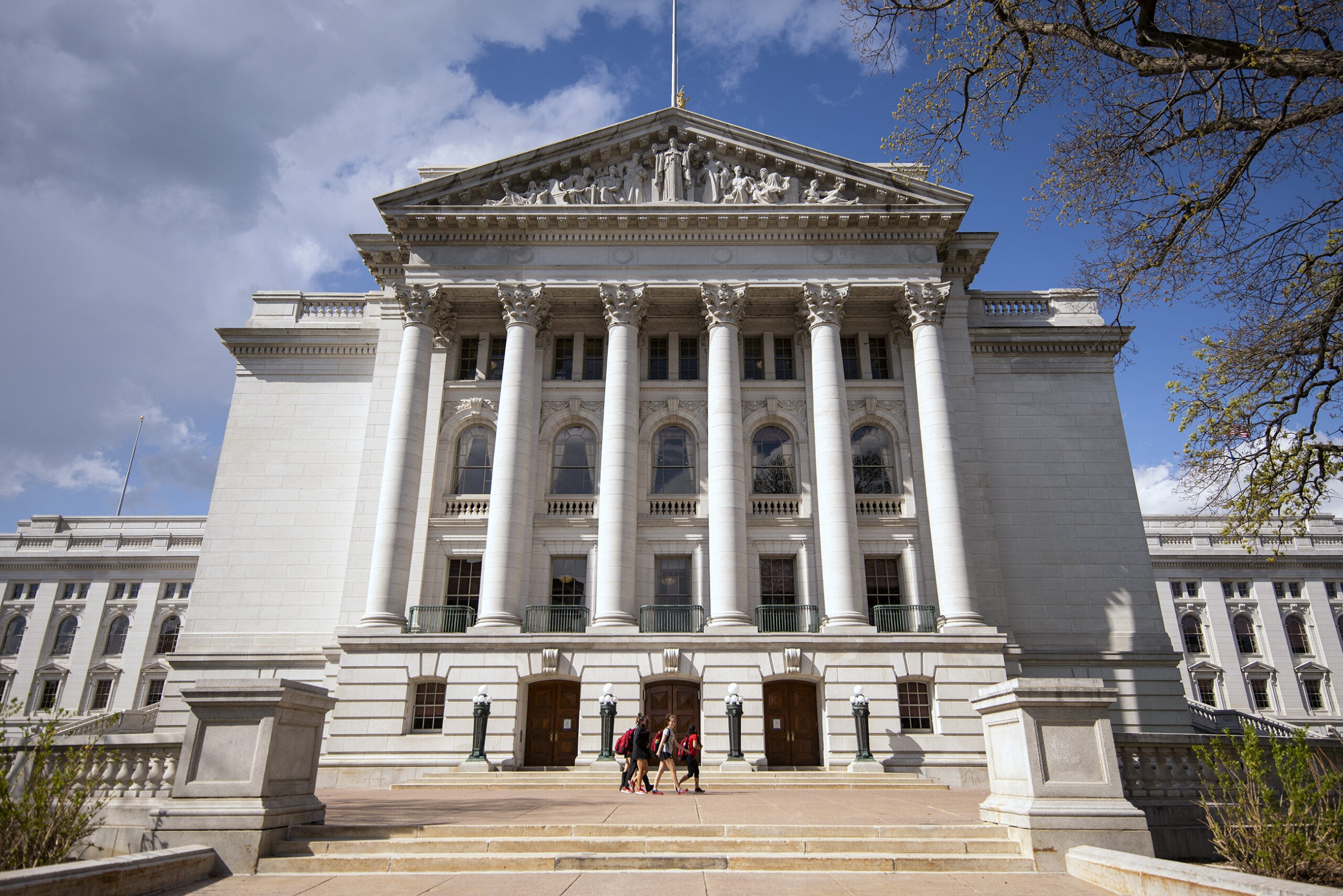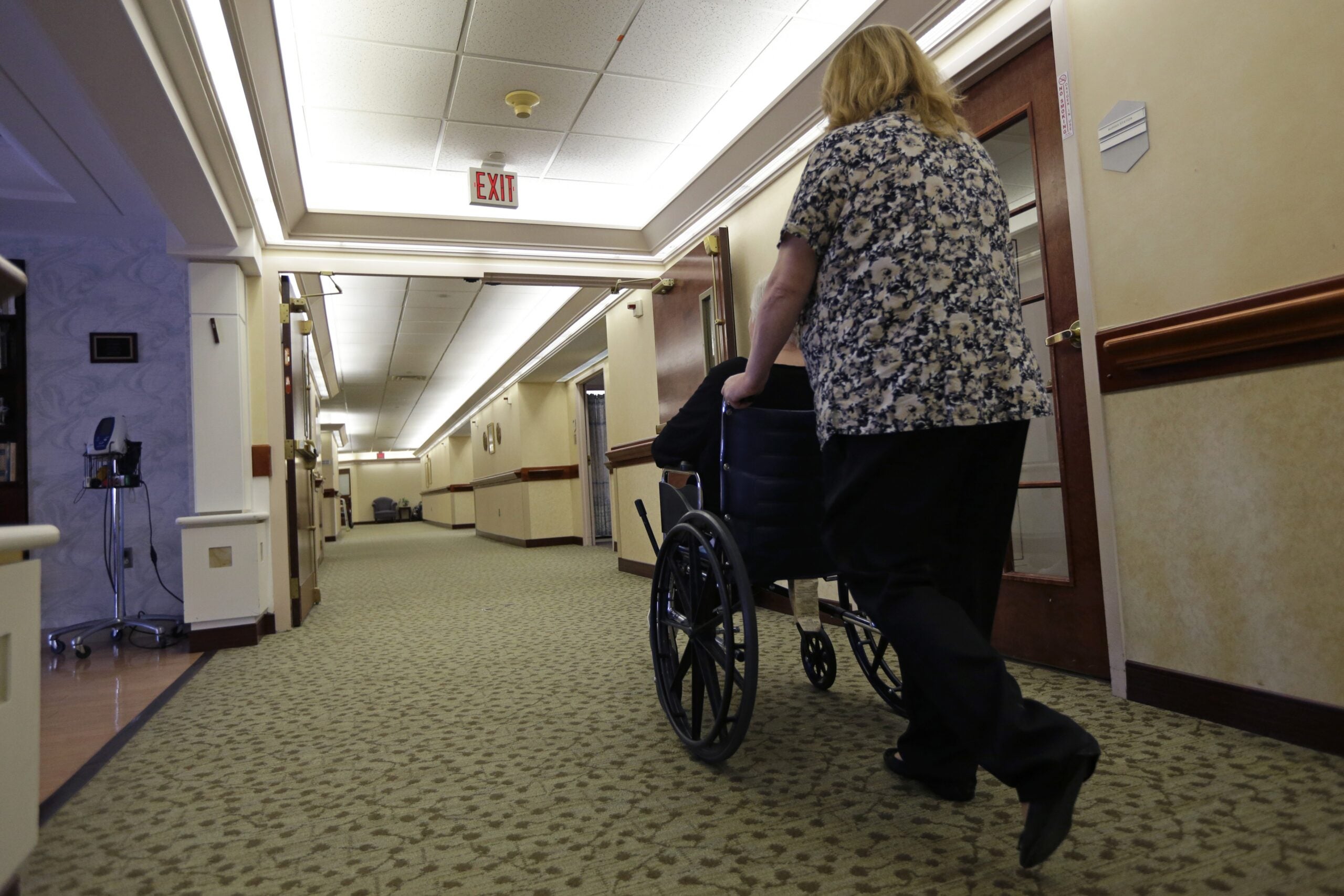The budget Gov. Tony Evers introduced in February shrunk dramatically Thursday after GOP lawmakers removed hundreds of the governor’s proposals and trimmed the plan by billions of dollars.
From an expansion of Medicaid, to the legalization of marijuana, to the modernization of Wisconsin’s unemployment system, Republican lawmakers removed 384 of the governor’s budget provisions with a single vote.
The move will reduce the amount of federal money coming into Wisconsin by $2.4 billion and reduce state tax revenue by more than $1 billion compared to what the governor asked for.
Stay informed on the latest news
Sign up for WPR’s email newsletter.
It was also Republicans’ first step toward building a new budget from scratch instead of working from the blueprint Evers presented.
“We will be taking our Wisconsin state budget process back to basics,” said Sen. Howard Marklein, R-Spring Green, one of the GOP co-chairs of the budget committee.
The dramatic first step by the GOP leaves many of the biggest budget decisions yet to be resolved, like how much Wisconsin spends on K-12 schools and the University of Wisconsin System.
Even so, Thursday’s vote will have a lasting impact on the rest of the budget process because there will simply be less money to work with.
“This decision will punch a hole in our budget,” said Rep. Evan Goyke, D-Milwaukee.
Wisconsin offers Medicaid, or BadgerCare, to people who earn up to 100 percent of the federal poverty level. Evers’ budget would expand that to 138 percent.
Democrats have argued in favor of expanding Medicaid for years, dating back to former Republican Gov. Scott Walker’s administration. Because of the way the program was funded after the Affordable Care Act became law, not expanding Medicaid has meant Wisconsin has missed out on hundreds of millions of dollars in federal funding in previous budgets.
This year, the federal government added an extra incentive for the dozen states that have yet to accept the expansion. In Wisconsin’s case, that meant an extra $1 billion.
“Expanding Medicaid is something we should have done for a number of years, but now, it is even more clear,” Goyke said.
But Republicans were unswayed by the extra funding, arguing that the private insurance marketplace was better equipped to cover people who earn more than the poverty level.
“We’re literally to the point now where the federal government is trying to buy Wisconsin into greater government dependence,” said Rep. Shannon Zimmerman, R-River Falls. “That’s absurd.”
Sen. LaTonya Johnson, D-Milwaukee, said blocking the expansion was “shameful,” telling Republicans they were acting from a place of privilege.
“This is not about expanding a welfare program,” Johnson said. “This is about making sure that human beings have medical coverage.”
In addition to Evers’ plan to expand Medicaid, Republicans removed a long list of items from the budget. They include the governor’s proposals to:
- Legalize marijuana and use an estimated $165 million in tax revenue to fund expenses like rural schools.
- Modernize Wisconsin’s unemployment insurance system at a cost of $80 million.
- Restore union rights lost under Walker’s landmark Act 10 collective bargaining law.
- Require universal background checks for firearm purchases.
- Raise Wisconsin’s minimum wage to $10.15 per hour.
- Create a system of automatic voter registration.
- Eliminate the one-week waiting period for unemployment benefits.
- Increase weekly benefits for unemployment insurance.
About half of the proposals Republicans eliminated, were identified by the nonpartisan Legislative Fiscal Bureau as being “policy,” meaning they don’t necessarily need to be attached to the budget and are more akin to a standalone bill.
But the other half of the items deleted include proposals that affect the state’s bottom line, some in a big way. For example, Evers proposed scaling back a tax credit for the wealthiest manufacturers and another for capital gains — moves that would generate a combined $838 million for state government.
Republicans said they will now use the budget Evers signed two years ago as their starting point. The one he introduced in February, they argued, was never realistic to begin with.
“It’s 1,846 pages of fantasy,” said Rep. Tony Kurtz, R-Wonewoc, of Evers’ plan.
Democrats countered that the governor’s budget was a product of what the public wants. Two years ago when Evers proposed an identical expansion of Medicaid, an April 2019 survey from Marquette University Law School found 70 percent of voters supported it. That same survey found 59 percent of voters said marijuana should be legal while 83 percent favored medical marijuana.
“There’s a lot in here — in the governor’s budget — that Wisconsinites overwhelmingly support,” said Sen. Jon Erpenbach, D-West Point. “It’s what Wisconsin wants.”
Wisconsin Public Radio, © Copyright 2024, Board of Regents of the University of Wisconsin System and Wisconsin Educational Communications Board.






